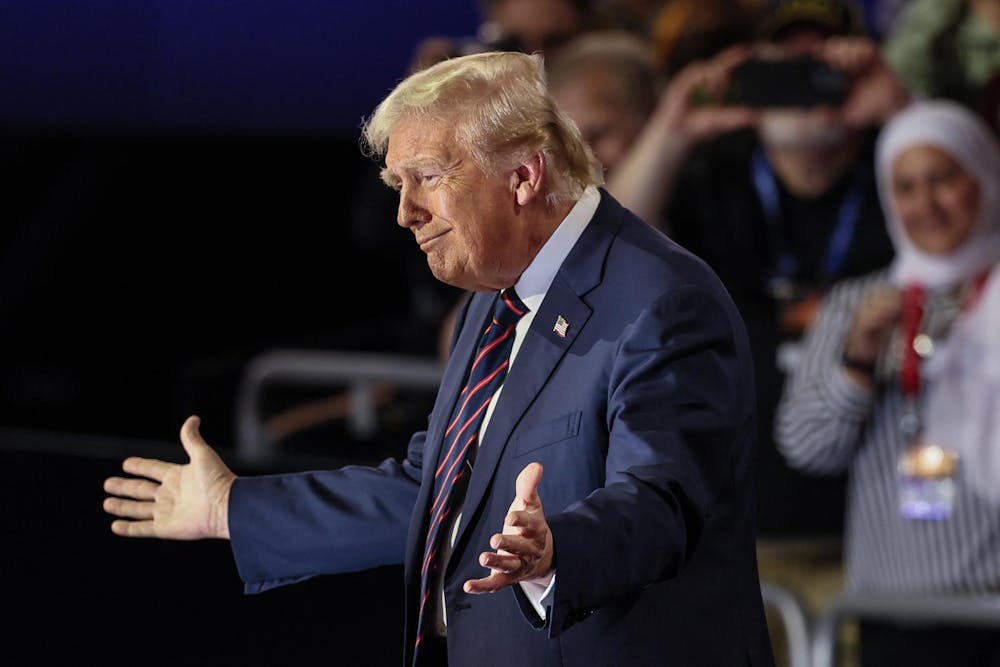As with much of President-elect Donald Trump’s incoming policy, much is uncertain. But experts are already bracing for a significant rollback of measures combating climate change.
Trump’s first term saw a rollback of climate regulations, an increase in drilling permits and a rhetoric shift on climate change. In his first year, he announced the move to withdraw from the Paris climate agreement and he’s expected to pull out of the agreement again.
An analysis by the advocacy organization Carbon Brief put the potential rise in greenhouse gas emissions at around 4 billion tons compared to a continuation of Biden’s plans. Under the Paris agreement, the United States is supposedly aiming for half of 2005’s emissions by 2030. Under a second Trump term, Carbon Brief projects a 28% decrease.
John Graham, an IU professor who worked in President George W. Bush’s administration, said he thinks Trump will move to increase oil and natural gas production, but likely not coal.
Climate activists expect much the same to happen in his second term, with some opportunities for progress. Robert Fischman, an IU law professor specializing in climate, said Trump will likely be able to roll back regulations much more effectively than his attempts during his first term.
“He's demonstrated that he can mount primary challenges to members of Congress who don't fall into line with what he would like them to do,” Fischman said. “I’m thinking Congress is going to be a much more active party to the incoming President's agenda than it was in 2017.”
Fischman said most of Trump’s regulatory slashes were conducted via rulemaking and other administrative tools, which made them susceptible to court rulings against them. But if Trump is able to hold a firmer grasp on Congress, legislative action is much harder to overturn.
A Supreme Court ruling this summer could offer some reprieve for environmental advocates, however. The overturning of the Chevron doctrine allows the judicial branch more oversight on rulemaking that would have previously deferred to experts in administrative agencies like the Environmental Protection Agency, Fischman said. So if the Trump Administration implements changes in the gray areas of law, the courts may be able to overturn those decisions.
On the other hand, Chevron’s demise will make challenging existing environmental regulations imposed under Biden much easier to overturn. The decision cuts both ways.
Graham said a multitude of agencies oversee U.S. energy production. He said Trump will likely appoint people to each of those agencies who are aimed at decreasing regulations on the energy industry as a whole — which could potentially include green energy as well.
Fischman also expects Trump’s EPA — which he nominated former Republican New York Rep. Lee Zeldin to lead — will reduce enforcement of existing regulations for polluters. Zeldin will also be able to control a significant amount of funding granted to the agency by the near-trillion-dollar Inflation Reduction Act, a major piece of legislation passed by the Biden administration.
The Inflation Reduction Act also offered billions of dollars offered up in grants and green energy programs.
That’s important for IU and its climate action plan. Through the Inflation Reduction Act, the university has applied for:
- More than $20 million for solar power
- More than $10 million for vehicle electrification
- More than $70 million for heat recovery
Fischman said it would be relatively easy for a Trump administration to roll back grants that haven’t been appropriated yet. IU has not received any of those grants thus far, but he said the Biden administration will likely rush to approve funding in the remainder of his term.
"IU has applied for all grants through the Inflation Reduction Act aligning with our Climate Action Plan for which the university is eligible,” IU spokesperson Mark Bode said in a statement to the Indiana Daily Student. “Any statement about future funding would be speculative."






